The fourth edition of the Sunny Hill Festival in Kosovo, which was founded by global pop star Dua Lipa and her father Dukagjin, was well-received by music lovers, but there were criticisms regarding ticket prices and the need for improvement in infrastructure.
The fourth edition of Kosovo’s Sunny Hill festival, joined in the protest against gender based violence, with the slogan ‘A flag for her’. A circle of purple flags stood out in the centre of the festival’s new location in Bërnica village in the outskirts of Prishtina. As festivalgoers moved from the festival’s Chill Zone, where they could relax, to the main stage, some also would stop to read the statement:
“We are raising our purple flags in protest and in solidarity, towards sunnier skies for our country’s women,” the sign read.
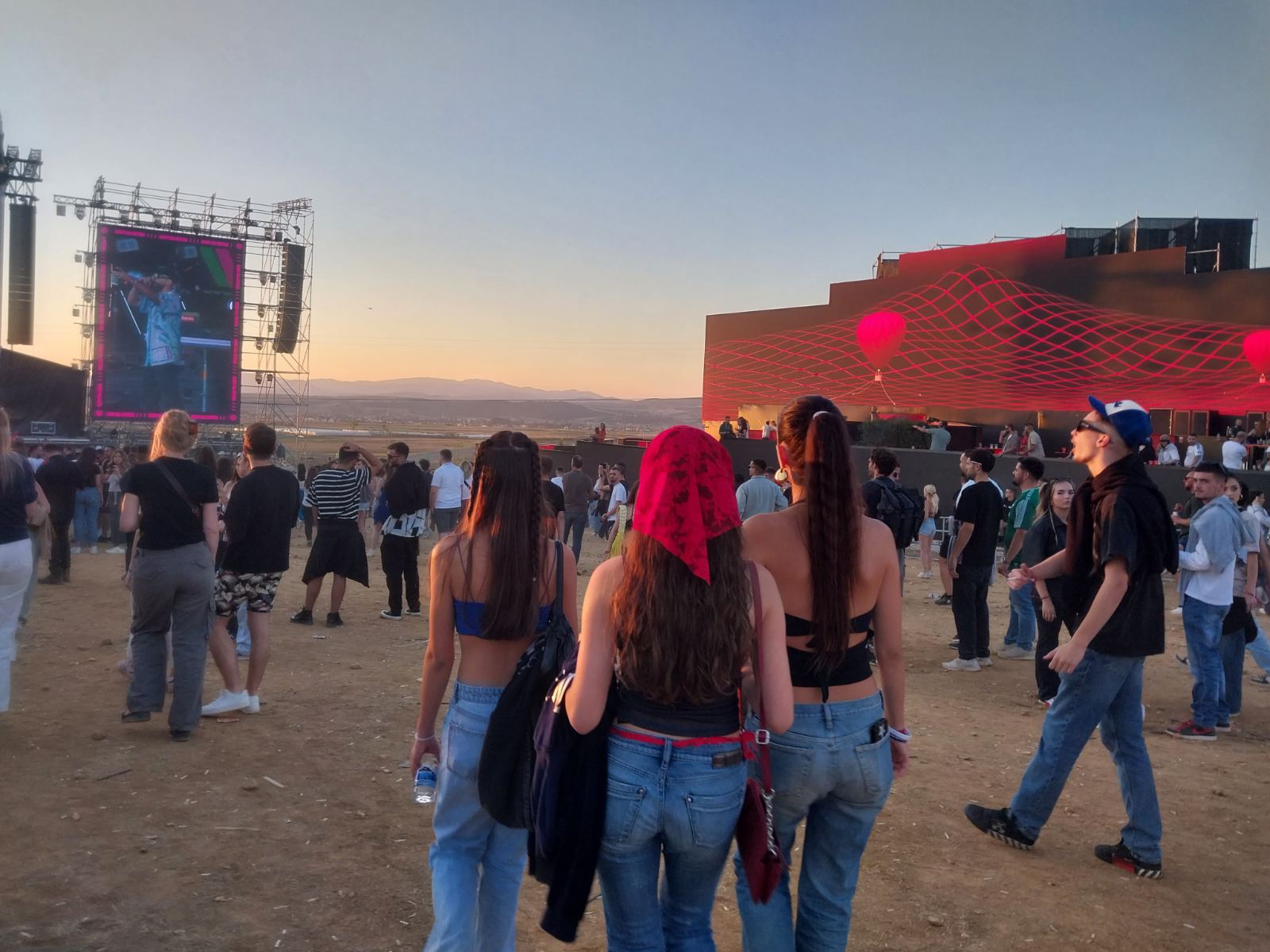
People Gathering at the Sunny Hill Festival Main Stage, Photo: BIRN
While the theme was very powerful, it was noticeable only if attendees took the time to stop amidst the dust. Sunny Hill Festival’s 2024 edition, which took place from 25-28 of July in its own location demonstrated the festival’s and Prishtina municipality’s need for infrastructural investment.
The 17-hectare property leased from the Municipality of Prishtina offers enough space to accommodate tens of thousands of people, but there is still work to be done in improving conditions, including road and lighting infrastructure as well as green area maintenance to eliminate dust.
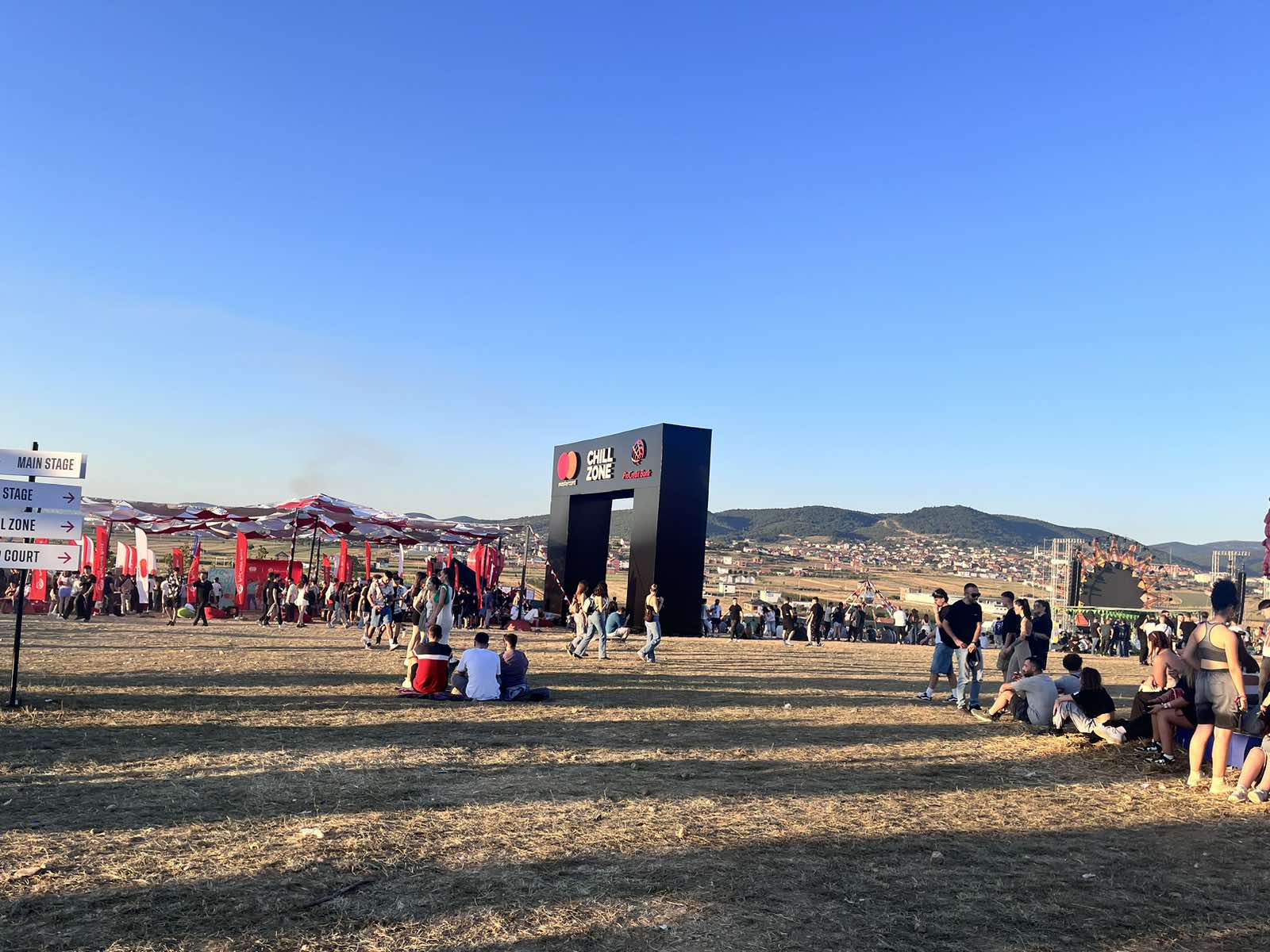
Sunny Hill Festival Terrain at New Location in Bernica Village: Photo: BIRN
“I can’t express enough the pure joy it is to witness this festival become what it has over the past 5 years. Seeing it grow and become something more than we could’ve ever dreamed of,” singer Dua Lipa wrote on X on Monday.
“Watching everyone work so tirelessly around the clock has been the most thrilling/beautiful/inspiring/energising/stressful (at times) but the most rewarding thing I am so proud to be a part of,” Lipa added.
Critics on Ticket Prices
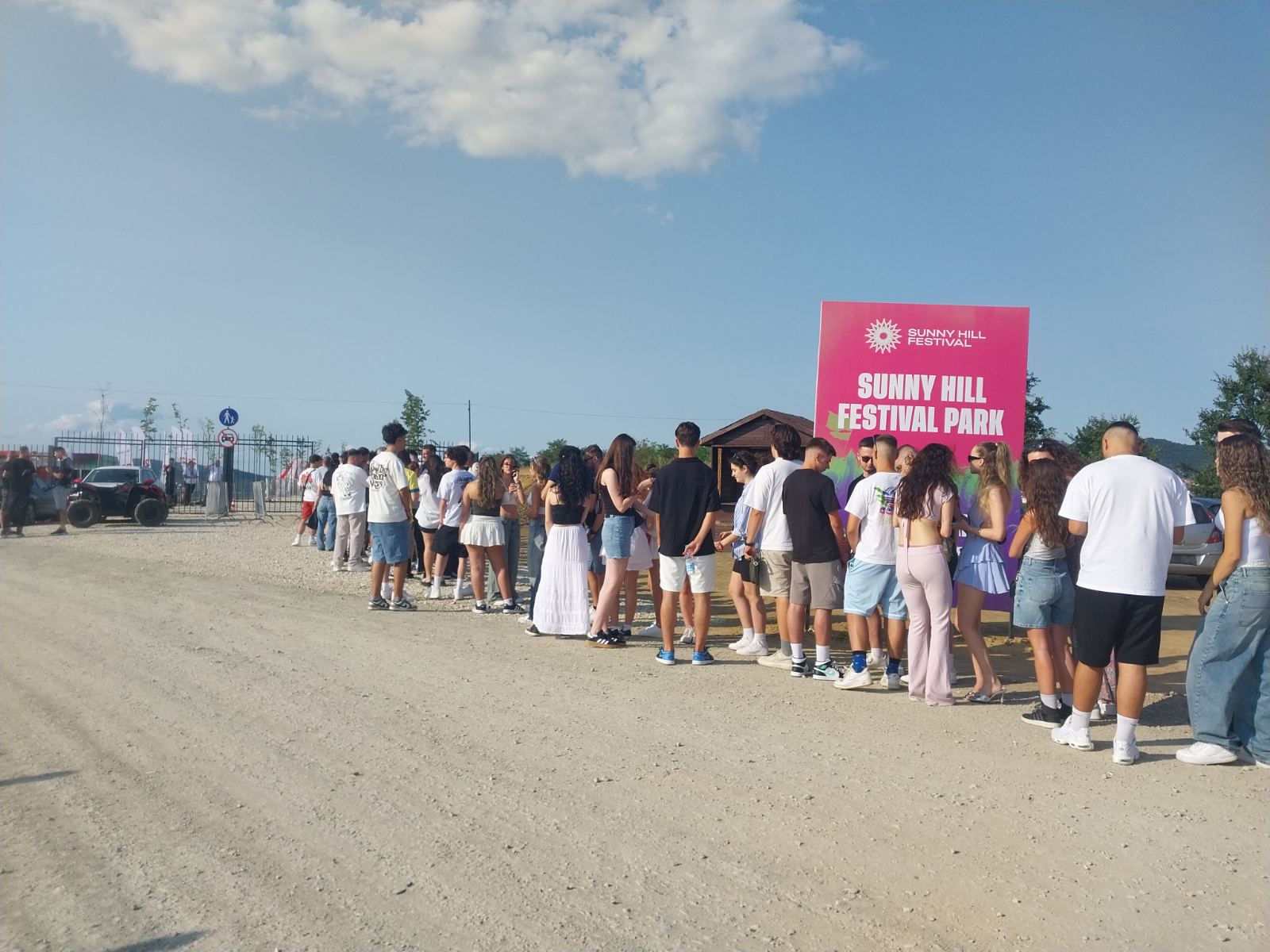
Queue at the Main Gate of Sunny Hill Festival, Photo: BIRN
The regular ticket price of 200 euros is high for the standard of living in Kosovo, where most ticket holders are young people who depend economically on their parents.
Blerta, who is employed, expressed that she would not have bought the ticket at that price if she had not won it in a giveaway from local businesses.
“I would never have bought the ticket at the full price because it’s too expensive for me, and it doesn’t appeal to me at that price. Considering the economy, most are unemployed young people who get money from their parents.”
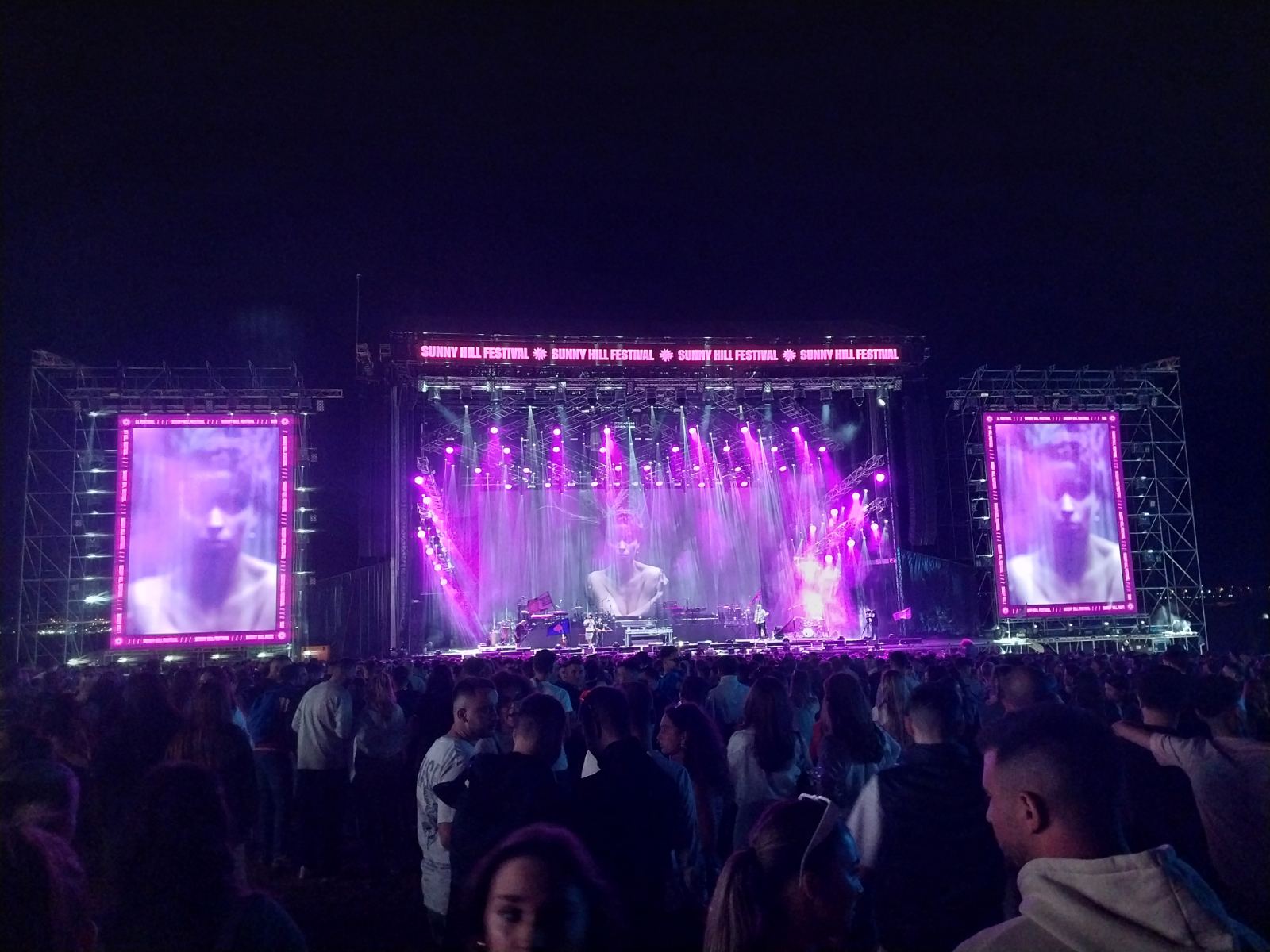
Sunny Hill Festival Main Stage, Photo: BIRN
On the other hand, Blerta was pleased that the festival has its own location with more space.
“In previous years, people traumatised me by pushing, but here there is space, and if I get tired, I can sit down and rest,” she said, expressing satisfaction that the organisers arranged bus transportation, especially given that the location is around 10 kilometres from the city centre.
Meanwhile, Hana added that she expected more famous artists in this edition.
“An artist we know who is international is Bebe Rexha,” Hana emphasised. She also added criticisms regarding access to alcohol for underage students.
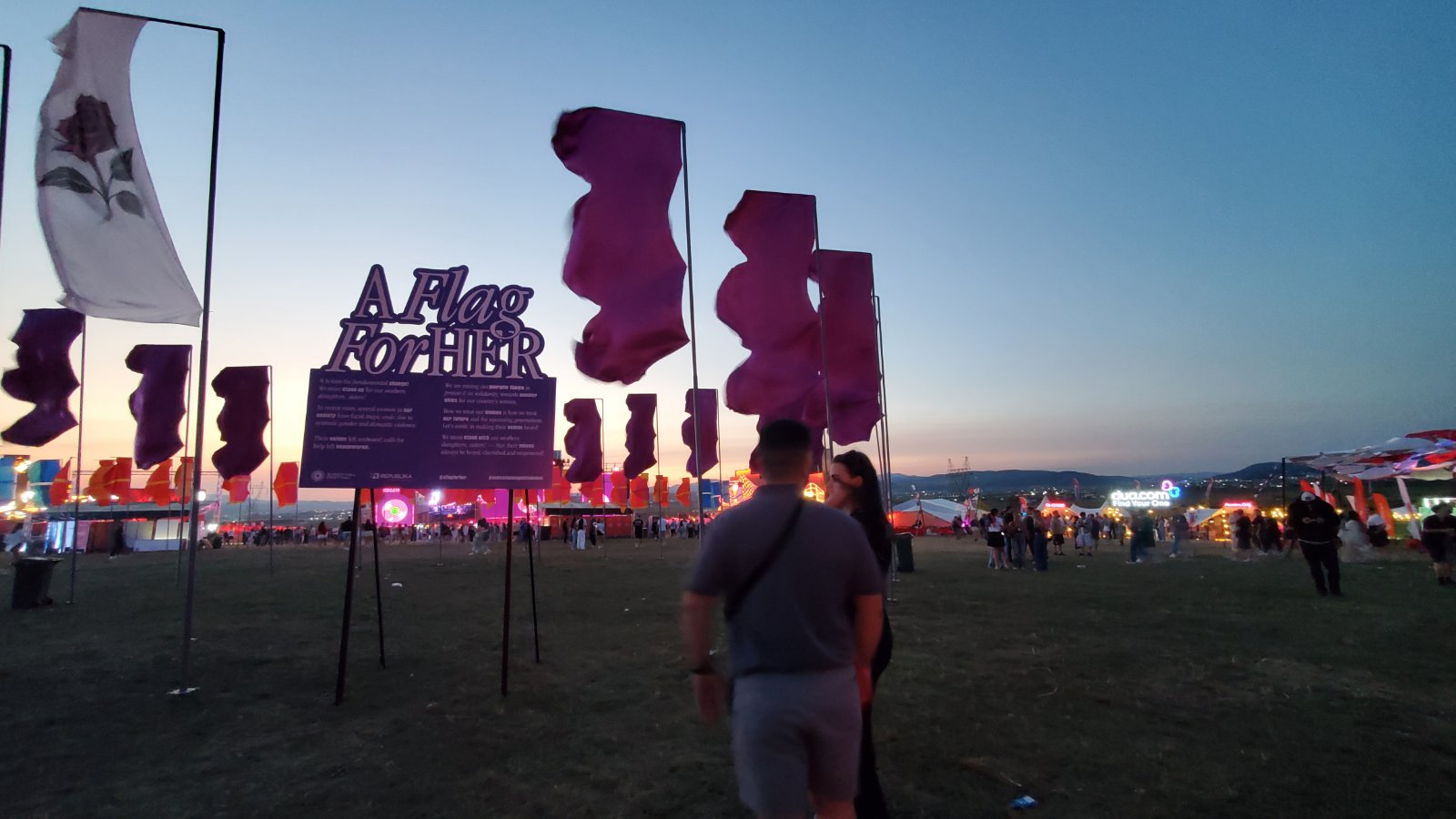
Purple flags at the Sunny Hill festival for this year’s festival’s theme “A Flag for Her”, against gender based violence. Photo: BIRN
“There needs to be more control. Most of the people I saw buying alcohol were under 18.”
Vlera, a student, said that her parents bought her the ticket.
“I was more desperate—the ticket was 100 euros (believer ticket), expensive, and I don’t think the artists are worth that price,” she added.
In an interview for Kallxo Përnime TV Programme Dukagjin Lipa noted that compared to previous editions, around 45 percent of ticket holders are international.
“We have built a name. We have a lineup of the best in Europe, surpassing many festivals in the region that have been around for years,” he said, adding that the economic impact of the festival is around 20 million euros in one week.
Need for more investment in infrastructure
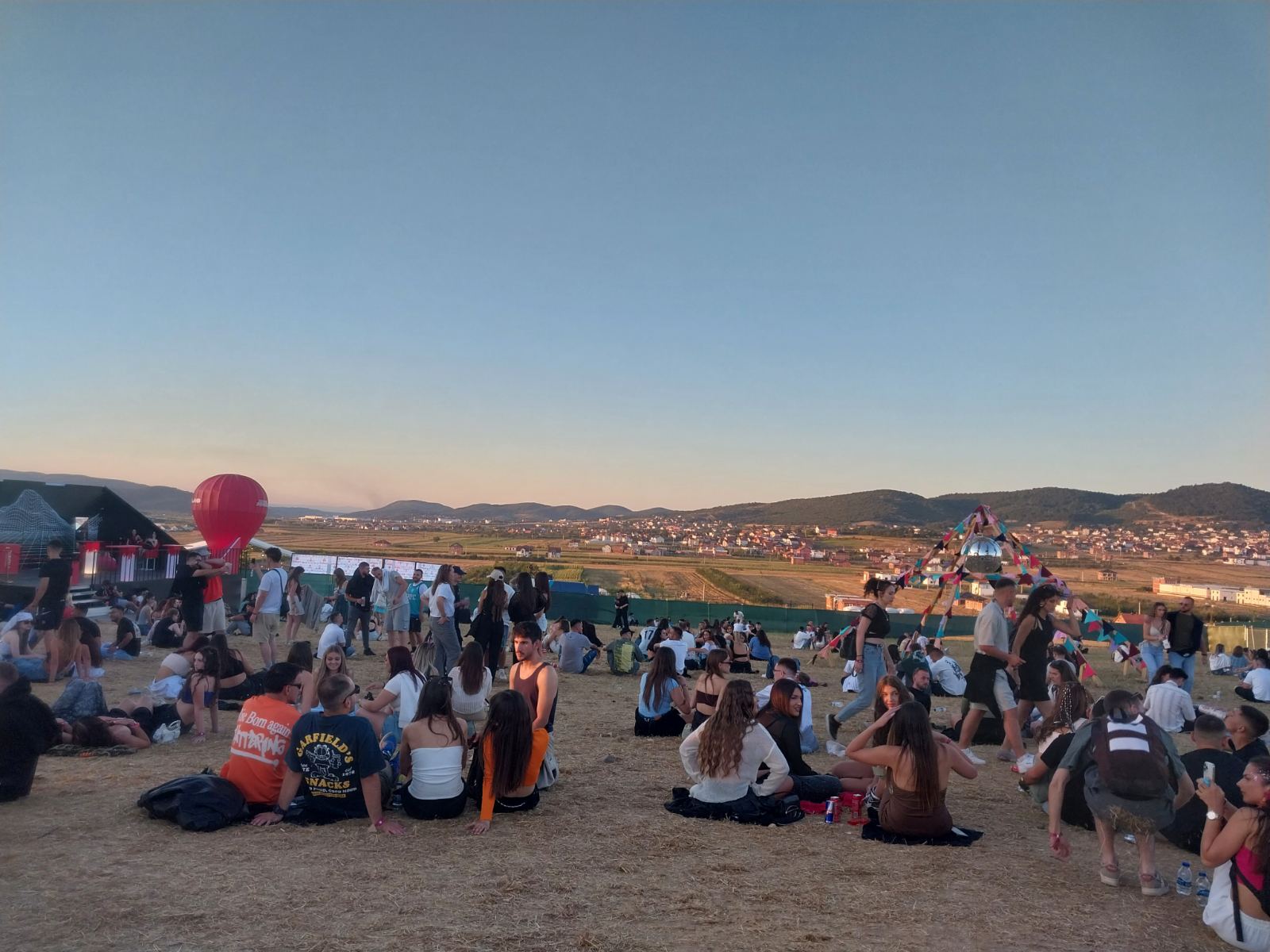
One of the ‘Chill Zones’ at the Sunny Hill festival, where festivalgoers can sit and relax. Photo: BIRN
Considering that the festival was held for the first time at a new location, unlike the previous three editions, which were held in the protected Gërmia Park in the capital, there was a noticeable need for investment in accompanying infrastructure.
The nearly kilometre long road leading to the festival entrance was mostly improvised, as the site allocated to the festival had not previously seen much traffic.
Additionally, there was a lack of lighting outside the festival grounds, forcing police officers at the gates to use flashlights to guide people.
This problem was particularly evident on the first day of the festival when attendees were unfamiliar with the terrain and unsure where to wait for transportation.

Global pop start Dua Lipa at Sunny Hill festival’s VIP stand, July 25, 2024. Photo: BIRN
Another significant issue was the amount of dust inside and around the festival location.
The Municipality of Prishtina financially helps in the organisation of the festival. In 2024 it contributed 100 thousand euros in cooperation with the organisers. In the 2022 and 2019 editions the municipality allocated 150 thousand euros for the festival’s organisation.
The Mayor of Prishtina, Përparim Rama on Monday via a Facebook post emphasised that for four nights, Prishtina hosted world-class artists and highlighted that the youth of the country are exemplary as there were no incidents.
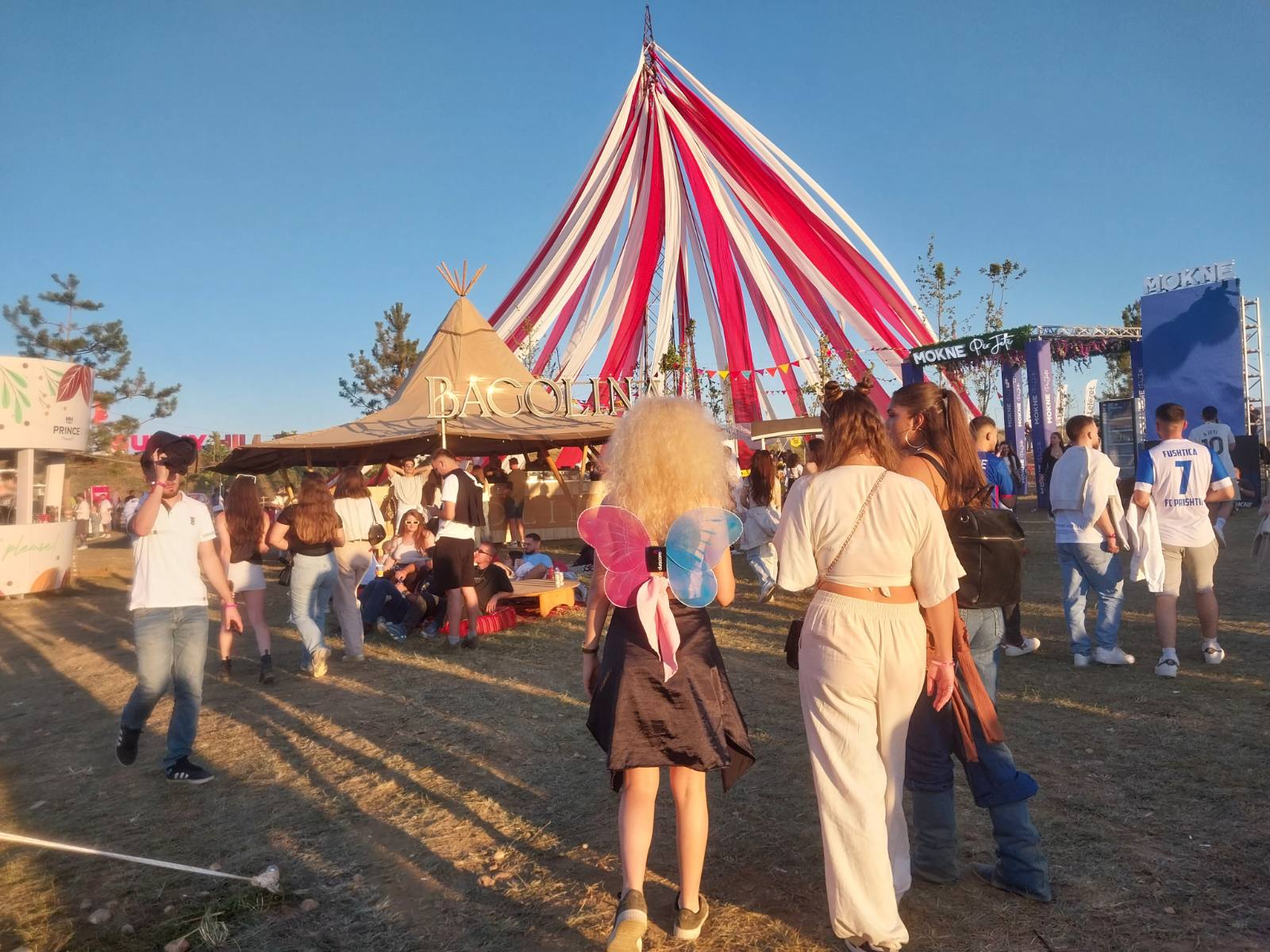
One of the ‘Chill Zones’ at the Sunny Hill festival, where festivalgoers can sit and relax. Photo: BIRN
“Our youth impressed me once again with their culture and maturity. Tens of thousands of participants and not a single incident. An exemplary youth and society,” he wrote.
The festival, founded in 2018 by the world-famous Kosovo-origin singer Dua Lipa and her father, Dukagjin, is the largest music festival in Kosovo, which aims to put Kosovo on the map with one of the biggest festivals in Europe.





